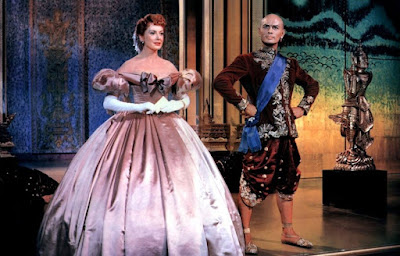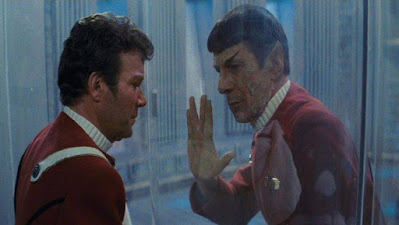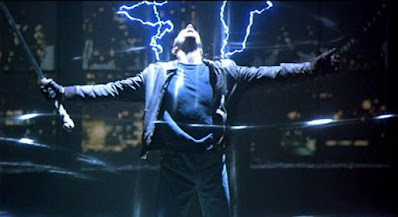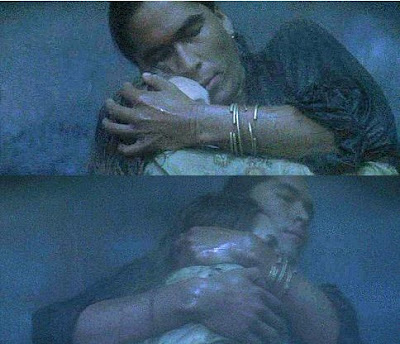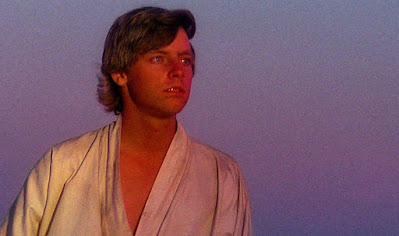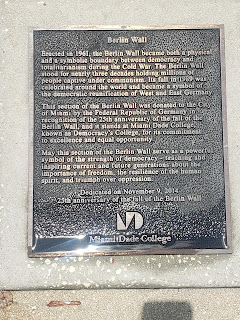[NOTE: THIS REVIEW PERTAINS TO AN
ADVANCED SCREENED WORK-IN-PROGRESS VERSION, AND NOT THE FINAL CUT. AN ADDENDUM
MAY OR MAY NOT BE ADDED AFTER THE OFFICIAL CUT RELEASE] [MINOR SPOILERS ABOUND]
"It was the best of times, it
was the worst of times, it was the age of wisdom, it was the age of
foolishness, it was the epoch of belief, it was the epoch of incredulity, it
was the season of Light, it was the season of Darkness, it was the spring of
hope, it was the winter of despair, we had everything before us, we had nothing
before us, we were all going to direct to Heaven, we were all going direct the
other way...."
- Charles Dickens; "A Tale of Two
Cities".
"Two roads diverged in a wood,
and I - I took the one less traveled by - And that has made all the
difference."
- Robert Frost; "The Road Not
Taken".
Comparing
a super hero film to the literary likes of Dickens and Frost seems pretentious,
but The Flash, directed by Andy Muschietti, is a weighty film disguised as a
popcorn flashy fun film that plays to the conceits and themes of the quoted
from works above: duality, alternate paths, and the consequences of decisions,
measured or rash, are replete in the story of one man's inability to accept his
grief and, in doing so, try to change the immutable. The quotes above
succinctly encapsulate the story's premise and stakes.
It's
no secret that this film as had a troubled production from its announcement
five years ago: Production delays, actor availability, the COVID pandemic, the
diminishing quality and box office returns from each DC film released in
between, and the public relations nightmare that is its lead. It's a film with
a delicate balancing act of measuring tragedy against fun and, surprisingly
enough, The Flash equally manages to do both.
A
few years after the events of Justice
League (2017), Barry Allen (Ezra Miller) is a forensic scientist with the
Central City Police Department; a position which allows him to continue his
search for elusive evidence that would exonerate his father Henry Allen (Ron
Livingston, taking over for Billy Cidrup) of the murder of his mother, Nora
(Maribel Verdu). When the latest attempt fails, a frustrated Barry returns to
the past to alter the events leading to her death, causing a chain reaction
that can result in the destruction of the multiverse.
It's
appropriate that this film tackles this subject. In the comics, it was the
Barry Allen version of The Flash who ushered in not only the Silver Age of
comics, but the concept of multiverse and alternate timelines in the DC
universe. Further, the plot (fleshed out by screenwriters Christina Hodson and
Joby Harold) is loosely based on the DC Comics story line
"Flashpoint" by writer Geoff Johns and Andy Kubert. While this isn't
the only adaptation of the story (having been covered in animation in the DC
Animated Universe "The Flashpoint Paradox" and in the second season
of the CW series The Flash starring
Grant Gustin), it is the one that's most ambitious in its scope. It's a tight
story that doesn't slow down and doesn't chintz on the drama. The ramifications
of Barry's actions are disastrously epic, and Muschietti's horror background is
in full evidence here as a dystopian feeling of foreboding hangs in the air. Barry
finds himself in a new timeline wherein not only is mother alive, but he finds
a happier-go-lucky version of himself and a world without heroes...save one.
As
aforesaid, the problematic nature of the film's lead ran the risk of tarnishing
the production as a whole. No matter how fast the plot goes, it cannot outrun the shadow of Miller's real-life malfeasance. However, if
one can divorce the art from the artist, it can be said that Ezra Miller pulls impressive
double duty as two different iterations of Barry both visually and in
characterization. The Barry we first see in this film is not the ADHD sprite we
met in Justice League. Though still
somewhat spastic and unsure, this is a Barry who's matured and embittered by a
system he's sworn to uphold. The contrast between "our" Barry and the
Barry who is unmarred by tragedy and unencumbered of responsibility is immense,
allowing for the opportunity for character development that Miller sinks their
teeth into. For purists, Miller's interpretation of Allen has struck a sour
note. Yet one cannot deny the fact that when playing their version of each
version, they bring their A-game. Miller engenders sympathy for Barry as the
character comes face-to-face with the consequences of his actions, even as he
believes that they can be circumvented. [Personal
note: Perhaps I'm a bit more receptive to the performance than most. I myself
have recently suffered a personal tragedy, which makes Barry's quest much more
tragically relatable to me. But for me to feel that resonance shows how
effective their performance is]. There's only perhaps one moment of
unintentional humor from an overdramatized scene, but one cannot argue that the
performance is a solid one. Ben Affleck returns as Batman one last time to
provide Barry sage wisdom, and it's the most relaxed performance he's given as
the character; offering a glimpse at what could have been.
It's
no secret that the tale involves a world without a Superman. Instead, it has
Supergirl, originally teased by an open pod in Man of Steel (2013) and finally
paid off in the form of newcomer Sasha Calle. Sasha is...fierce; imbuing Kara
Zor-El with loads of Latinx fire. Her fish-out-of-water character exudes
confidence to the extent that one can't help but accept her almost immediately
as Kal-El's cousin. Michael Shannon and Antje Traue reprise their roles of
"General Zod" and "Faora-Ul" from the aforementioned film,
imbued with a villainous precision brought to fruition; even more deadly than
in 2013, if that can be believed.
Honestly,
the real hook of this film is neither its star nor its premise. It's a return
31 years in the making: Michael Keaton,
donning the batsuit as his version of Batman. Just as there's a notable
contrast between the two Barrys, it's also a contrast between two Bruce Waynes.
While Affleck's bat is still a broken, weary warrior whose mission hangs upon
his shoulders like a shroud, Keaton's version is age-tempered and centered, if
no less eccentric. His Batman is more efficient and effective than he was in
Batman and Batman Returns. It's a performance that's imbued with history and filled with poignancy. Keaton is having a blast in the role, and it shows.
The
screening I went to was unfinished, therefore no observation concerning the CGI
can be fully assessed until the actual film release other than the those
concerning the two Barrys, which was where the majority of the focus was for
this version but, given what was shown, the visuals will be nothing short of
spectacular. Benjamin Wallfisch score is more than serviceable, even if the
only themes that are recognizable are not of his orchestration. Nevertheless,
it hits the emotional beats where it needs to.
The
ending was cut short and no end credit scenes were shown, but even in this
version there were surprises galore (and if you've seen any of the
behind-the-scenes production footage, you can guess at least what one aspect of
the "surprise ending" will entail). It closes the book on one chapter
of DC cinematic history while it celebrates all that came before, implying that
every interpretation is valid, and every representation is respected. It's a
surprising love letter to DC live-action output.
Though
this version was still a work-in-progress and despite its controversial lead,
The Flash promises to be a satisfying conclusion to the Snyder-verse of DC
films (the trouble-plagued forthcoming Aquaman and The Lost Kingdom
notwithstanding); one that is epic in scope and intimate in emotion.
Run,
reader, run...to see The Flash.

